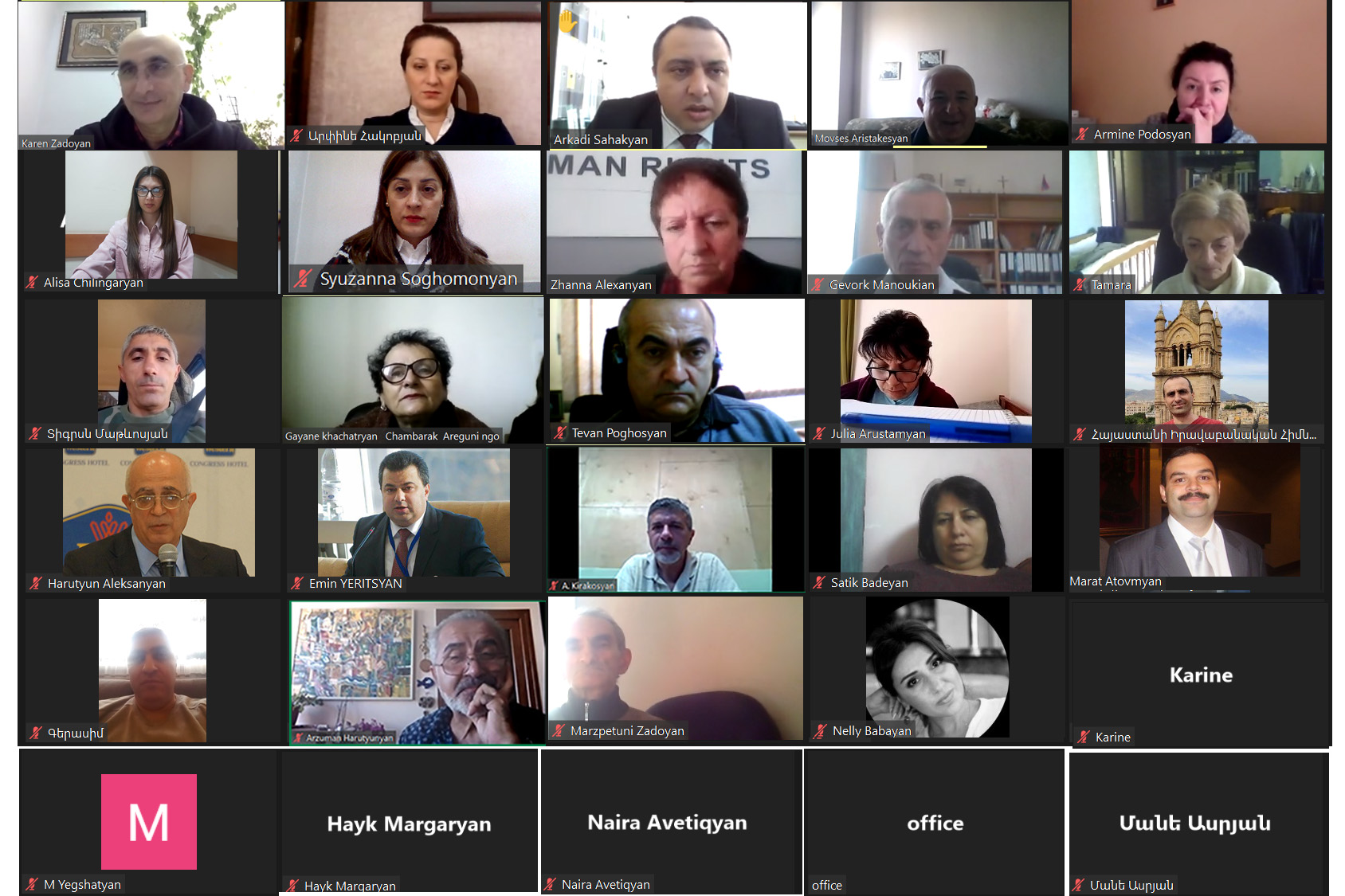
The expert online workshop on the study “Integrity Checking and Responsibility of Judges under the extraordinary conditions (of transitional justice): International experience and mechanisms for implementation in Armenia” organized jointly by the CSO Anti-Corruption Coalition of Armenia, and Armenian Lawyers’ Association (ALA) was held today on 8 November.
“We have held a number of professional conferences, workshops dedicated to transitional justice, judicial system reforms, and this next initiative is more aimed at assessing the integrity of judges and improving the judiciary. We know that in general, the term integrity contains elements, according to the international definition, which are professional competence, accountability and transparency, ethics and being free from corruption.
We know that the issues related to it are not new, they are of continuous nature, starting from the period of our independence until now; the problems are deep and need systemic solutions.
Arpine Hakobyan, President of the “NGO Center” Non-Governmental Organization and Chairwoman of the Governing Board of the CSO Anti-Corruption Coalition of Armenia, noted that one of the important emphases is that within the framework of the Institute of Transitional Justice, integrity is a broader concept which implies not only checking the honesty and moral values of a judge, but also vetting, that is, purification in that process as well.
“A very important analysis has been carried out by the CSO Anti-Corruption Coalition of Armenia, and Armenian Lawyers’ Association, which also refers to the international experience, taking into account the reality of Armenia,” Arpine Hakobyan said.
Expert of the Armenian Lawyer’s Association Suzanna Soghomonyan mentioned that the work on the study had started in 2018.
She presented the international experience, noting that when in 2019, the study on transitional justice was published, the experience of about 35 countries was studied, and it was the beginning of understanding which countries’ experience can be relied on both in terms of success as well as the failure.
“In the framework of this latest study, we have identified 5 countries – Ukraine, Georgia, which in our expert opinion are not so successful, as though the legislative changes have been made, but most importantly, perhaps due to lack of political will, no reform could be implemented and succeeded, and it turned out that these were certain steps to increase the level of public confidence. Bosnia and Herzegovina and Albania, the latter of which is considered one of the most successful countries, given that constitutional changes have been made and judges and prosecutors have been left out of the judiciary on the basis of that integrity checking. And the fifth country is Kenya, which is also considered one of the most successful countries,” Suzanna Soghomonyan said.
At the end of the workshop, Karen Zadoyan presented ten proposals on judicial reform, which are aimed at checking the integrity of judges.
